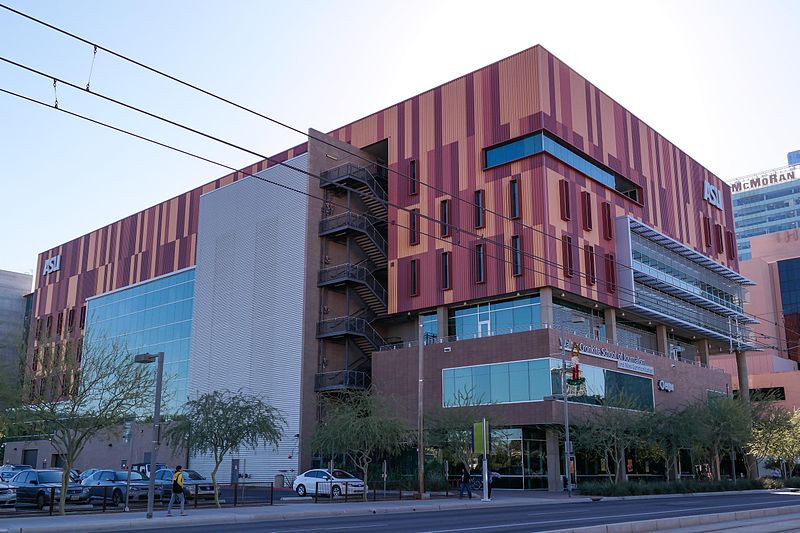The Board of Directors of the American Institute of Architects (AIA) has voted for Ehrlich Architects to receive the 2015 AIA Architecture Firm Award. The firm will be honored at the 2015 AIA National Convention in Atlanta. Ehrlich Architects is renowned for fluidly melding classic California Modernist style with multicultural and vernacular design elements by including marginalized design languages and traditions.
The AIA Architecture Firm Award, given annually, is the highest honor the AIA bestows on an architecture firm and recognizes a practice that consistently has produced distinguished architecture for at least 10 years.
The work of Ehrlich Architects covers a wide variety of program types (residential, commercial, institutional, educational) and uses a much richer palette of materials and textures than the typical California Modernist-influenced firm. However, they are most distinguished by the subtle and complex way they blend Modernist and multicultural design elements.
Before founding his Los Angeles-based firm in 1979, Steven Ehrlich, FAIA, spent time working with the Peace Corps in Africa. There Ehrlich gained an appreciation for simple, natural materials and vernacular solutions to energy, sustainability, and building performance challenges. Back in Southern California, Ehrlich found opportunities to renovate properties designed by architects high up in the California Modernist canon (like Richard Neutra, FAIA), which helped him to develop a confident, loose-limbed, but still traditional Modernist aesthetic. But his experiences in Africa, with building traditions created years before Modernism demanded a total rupture with the past, pushed him to develop an architecture that was more inclusive, responsible, and responsive than pure Modernism.
Ehrlich Architects is led by four diverse partners whose personal backgrounds and experiences result in a unique cultural sensitivity and a commitment to creating architecture that is globally relevant. They are: Steven Ehrlich, FAIA; Takashi Yanai, AIA; Patricia Rhee, AIA; and Mathew Chaney, AIA.
To fulfill these goals, Ehrlich Architects see themselves as “architectural anthropologists”—exploring ancient, developing-world building traditions and situating them in contemporary buildings to solve contemporary problems. Japanese-style courtyards, Middle Eastern lattice screens, and vernacular mud construction have all been ways they enrich contemporary architecture with age-old multicultural building elements.
“The marriage of the particular with the universal is one of the great virtues of the firm’s design approach, where connections between culture, climate, people and place are woven together in a distinct humanistic architecture shaped by circumstance,” wrote Steve Dumez, FAIA in a letter of recommendation.
A few of their most notable projects include:
- The Ahmadu Bello University Theater in Zaria, Nigeria. One of Ehrlich’s most vernacular and sustainable buildings, this 500-seat venue is composed of a ring of mud-walled pavilions, decorated with traditional bas-relief ornamentation. Local craftsmen helped with its construction, and it can be arranged in both proscenium and theater-in-the-round configurations.
- The Federal National Council Parliament Building Complex in Abu Dhabi, UAE. A symbol for a burgeoning democracy in the Middle East, it melds familiar Arabic design language with contemporary form and the latest technological advances to create meaning, maximum functionality and environmental sustainability.
- The 700 Palms Residence in Los Angeles, which uses Corten steel, copper, and stucco to create a strong, rugged approach to California Modernism, dissolving barriers between indoors and outdoors with glass, alternately boxy and brawny, light and open.
- Arizona State University’s Walter Cronkite School of Journalism and Mass Communication, Phoenix, Ariz. As the firm’s first design-build project, utilizing BIM, fast track, and integrated project delivery, the building delivered great value to the public in less than two years and was a harbinger of downtown Phoenix’s energetic redevelopment.
- The John Roll U.S. Courthouse in Yuma, Ariz., takes the symmetrical massing of a typical 19th-century courthouse and reinterprets it into a Modernist desert sandstone box, adding generous public space with a massive canopy-shaded “front porch” composed of photovoltaic panels.
Ehrlich Architects is the 52nd AIA Architecture Firm Award recipient. Previous recipients of the AIA Firm Award include, Eskew + Dumez + Ripple (2013), VJAA (2012), BNIM (2011), Pugh + Scarpa (2010), Kieran Timberlake (2008), Muphy/Jahn (2005), Polshek Partnership (1992), Venturi, Raunch, and Scott Brown (1985), I.M. Pei and Partners (1968), and SOM (1962).
Related Stories
Architects | Feb 13, 2015
OMA commissioned to design newest New York High Line addition
Rem Koolhaas is the latest addition to the list of starchitects working on projects near the High Line elevated park.
Codes and Standards | Feb 12, 2015
ASHRAE, USGBC, IES consider biomass requirements in green building standard
The proposal would add biomass to approved renewables.
Codes and Standards | Feb 12, 2015
New Appraisal Institute form aids in analysis of green commercial building features
The Institute’s Commercial Green and Energy Efficient Addendum offers a communication tool that lenders can use as part of the scope of work.
Office Buildings | Feb 12, 2015
Is Houston headed for an office glut?
More than 13 million sf could be completed this year, adding to this metro’s double-digit vacancy woes.
Modular Building | Feb 12, 2015
New shipping container complex begins construction in Albuquerque
The Green Jeans Farmery already has a hydroponic farm component courtesy of owner and entrepreneur Roy Solomon.
Transit Facilities | Feb 12, 2015
Gensler proposes network of cycle highways in London’s unused underground
Unused tube lines would host pedestrian paths, cycle routes, cultural spaces, and retail outlets.
Healthcare Facilities | Feb 11, 2015
Primer: Using 'parallel estimating' to pinpoint costs on healthcare construction projects
As pressure increases to understand capital cost prior to the first spade touching dirt, more healthcare owners are turning to advanced estimating processes, like parallel estimating, to improve understanding of exposure, writes CBRE Healthcare's Andrew Sumner.
Transportation & Parking Facilities | Feb 11, 2015
11 of the nation’s best ‘Complete Streets’ policies of 2014
Austin, Texas, and Troy, N.Y., are among the cities with the strongest safe streets policies, according to a new report.
Sponsored | Roofing | Feb 11, 2015
New school blends with local architecture using Petersen metal roof
Perkins Eastman in Stamford, Conn., designed the school to emphasize and integrate the International Baccalaureate curriculum throughout.
Mixed-Use | Feb 11, 2015
Developer plans to turn Eero Saarinen's Bell Labs HQ into New Urbanist town center
Designed by Eero Saarinen in the late 1950s, the two-million-sf, steel-and-glass building was one of the best-funded and successful corporate research laboratories in the world.
















